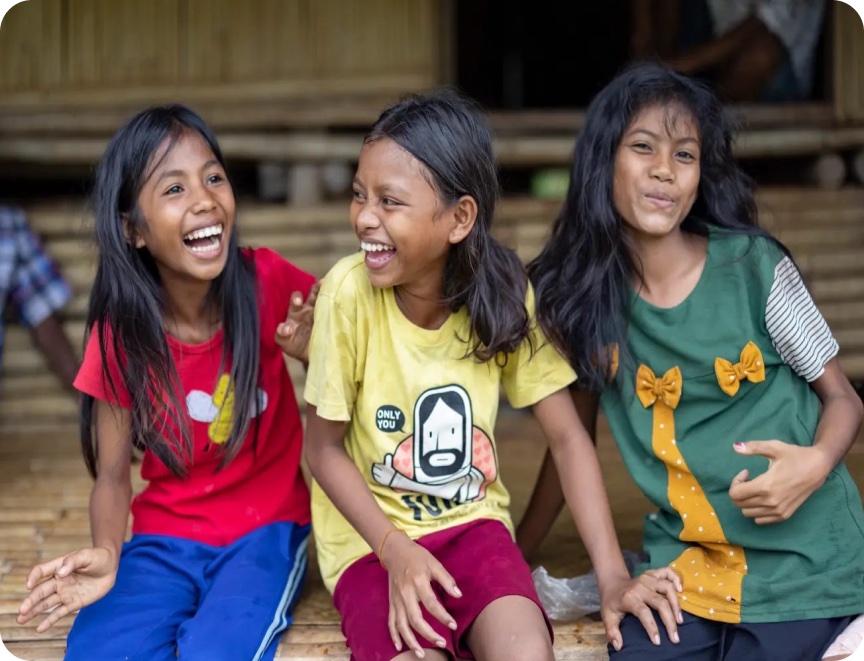Twelve of Australia’s international humanitarian and development agencies have written to Foreign Minister Julie Bishop, calling on the Australian Government to urgently push for a permanent ceasefire in the Occupied Palestinian Territory and Israel, and unhindered access for humanitarian assistance for civilians in Gaza.
Signatories include Act for Peace, ActionAid Australia, Anglican Overseas Aid, Australia Palestine Advocacy Network (APAN), Union Aid Abroad – APHEDA, ChildFund Australia, Oxfam Australia, PLAN, RedR, Save the Children and World Vision Australia.
Ongoing violence in Gaza and Southern Israel has displaced more than 450,000 Palestinians in Gaza, rendered 100,000 homeless, and left 900,000 people with only limited access to electricity and running water. While humanitarian agencies are responding to needs on the ground, delays in the passage of relief supplies at border crossings are complicating the effective and timely delivery of aid. Agencies urge the Australian Government to address these access issues to expedite the provision of life-saving humanitarian assistance and enable recovery and reconstruction efforts.
Executive Officer of Union Aid Abroad (APHEDA) Kate Lee said further diplomatic pressure was vital.
“In this conflict alone, over 475 children in Gaza have been killed and a further 370,000 children have been exposed to trauma and loss,” Ms Lee said.
“A whole generation of Gaza’s children are growing up under a military blockade, repeated airstrikes and recurrent humanitarian emergencies that can only thwart long-term durable peace between Israelis and Palestinians. Australia must do what it can to stop this conflict, end the blockade and provide targeted psycho-social recovery aid to families.”
The organisations expressed ‘deep regret’ over the breaking of the temporary ceasefire in Gaza and urged Australia to press all sides to better protect Palestinian and Israeli civilians from military operations and rocket attacks, including an international commitment to curb the use of explosive weapons in populated areas.
Save the Children CEO Paul Ronalds said 4,500 Australians had signed the agency’s petition calling on Minister Bishop to pursue this commitment.
“Explosive weapons are indiscriminate,” Mr Ronalds said.
“They kill and maim children and also destroy hospitals and schools. In the aftermath of destruction from explosive weapons, it’s even harder to get life-saving aid to children and families in desperate need. Australia must do more through its seat on the UN Security Council to stop civilians being harmed by the use of explosive weapons in populated areas.”
Oxfam Australia’s Chief Executive Dr Helen Szoke said a lasting agreement was needed to address the root causes of conflict and poverty in the Occupied Palestinian Territory.
“Australia must call on all parties to refrain from violence and return to the negotiating table – without long-term solutions to ensure economic growth and sustainable development for Palestinians in Gaza, it’s likely conflicts such as these will occur over and over again – undermining security and prosperity for both Palestinians and Israelis.
“That’s why an end to the blockade of Gaza is a critical first step towards durable peace and a viable two-state solution.”
Reverend Bob Mitchell of Anglican Overseas Aid said the current lack of commitment to peace was concerning.
“We are, of course, deeply concerned at the growing number of civilian casualties in this conflict and the destruction of so much essential infrastructure,” Fr Mitchell said.
“The greater devastation, however, is the apparent lack of any real commitment to a just peace.”
World Vision Australia CEO Tim Costello called on the international community to protect children from the atrocious violence.
“Children are suffering physically, emotionally and mentally. All children have the right to live in safety, free from violence, fear and need and must not be targeted in conflict.”
Executive Director of ActionAid Australia, Archie Law, drew attention to the importance of including women in the peace process.
“We were pleased that Australia’s Ambassador for Women and Girls, Natasha Stott Despoja, has called for women to be included in peace negotiations – which is essential to protecting women and children in Gaza, and in ensuring a lasting peace,” Mr Law said.
“It’s critical that Australia now works to put these principles into action. We must use all diplomatic channels, including Australia’s seat on the UN Security Council, to ensure that women are at the negotiating table and to uphold the commitment the Minister has made to protecting women and girls in conflict.”




























